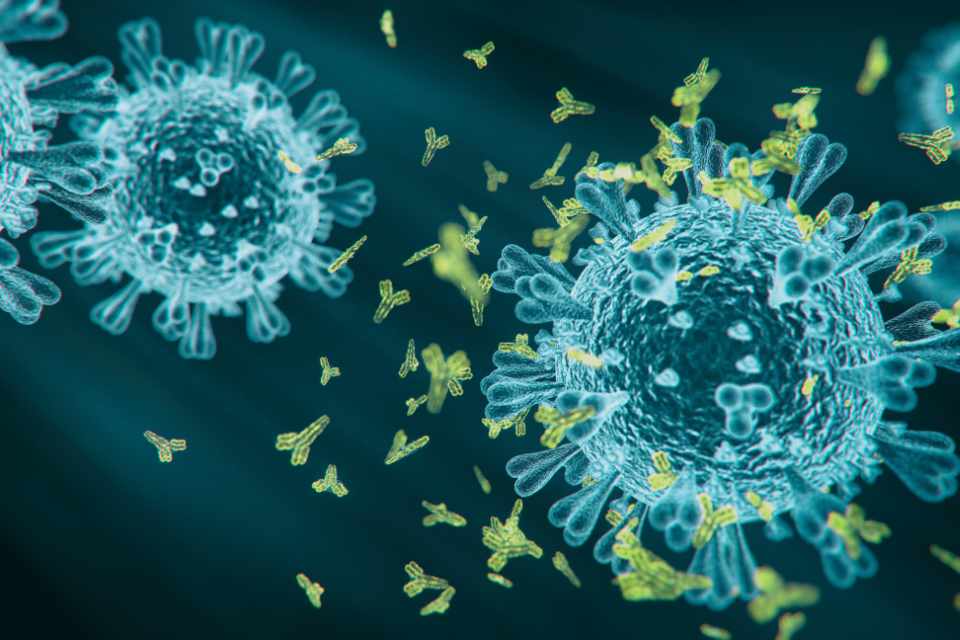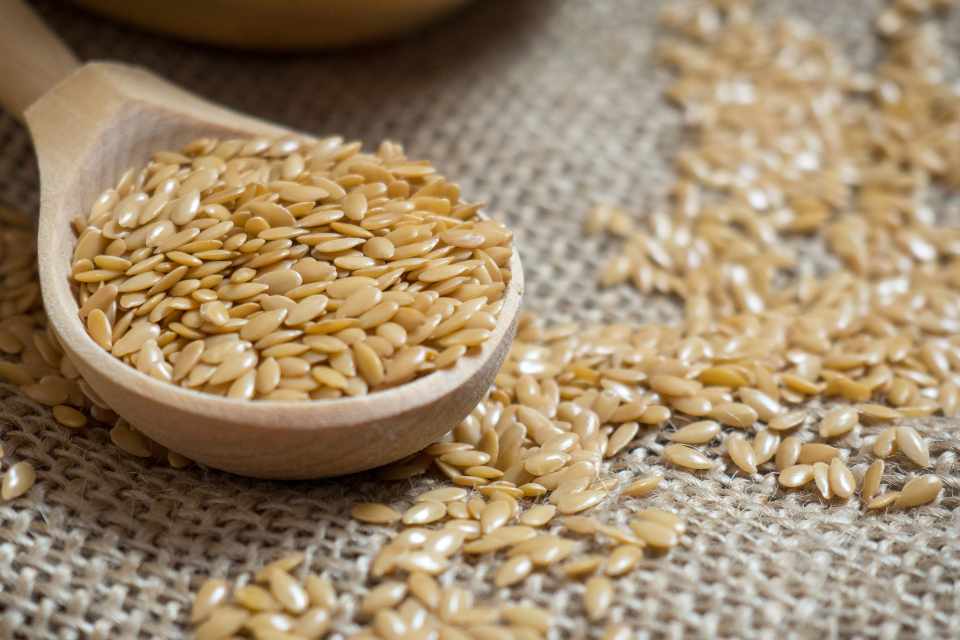Getting a restful night of deep sleep is essential for our overall health and can make all the difference in our energy levels. So it’s no wonder many people struggle with the effects of persistent poor sleep. Whether the reason is an ongoing medical condition, chronic pain, shift work or a stressful situation, millions of people have found that natural remedies can help them get better sleep.
Researchers estimate that around one in three people struggle with insomnia at some point in their lives, and feeling tired all the time is a common complaint. Unfortunately, modern pharmaceuticals have some risks, including dependency and undesirable side effects like headaches, irritability and impaired thinking. While prescription medications can be a valuable short-term solution to severe cases of insomnia, they aren’t always ideal for long-term use.
Herbal medicine and herbalists have been helping people achieve a better quality of sleep since ancient times, and there are still many herbs and other natural remedies used today with remarkable results. As an experienced herbalist, I believe in finding natural ways to heal our bodies. I have worked with numerous patients challenged by insomnia who can get quality rest thanks to various natural solutions.
Why good quality sleep is important
At its simplest definition, sleeping is a biological process that allows us to recharge our batteries while decreasing stress hormones in the body.
For maintaining good health, the recommended duration of sleeping is 7 to 9 hours per night. But the quality of your sleep matters too.
Deep sleep, also called slow-wave sleep, is considered one of the most restorative stages of restful slumber. It is a crucial period for the body to repair itself and restore energy levels.
Deeper sleep usually occurs shortly after the onset of sleep but has been shown to increase toward morning when we experience our most prolonged periods of uninterrupted shut-eye. It is also when your brain processes information and consolidates memories.
Lack of sleep has multiple health effects:
- slows reaction times and increases the risk of accidents
- increases fatigue
- decreases attention, concentration and mental performance
- impairs memory and increases the risk of dementia
- alters gut bacteria and contributes to a leaky gut
- increases inflammation
- it increases the risk of infections
- decreases vaccine efficacy
- raises blood pressure
- increases cholesterol levels
- causes hormone fluctuations
- lowers bone density
- increases the risk of developing diabetes
You may not be getting good quality sleep if you:
- snore, toss and turn, or wake up frequently through the night
- feel sleepy throughout the day
- experience mood changes, such as feeling irritable or depressed
- have an increased appetite
- have puffiness or dark circles around your eyes
- get sick more frequently
What’s stopping you from sleeping?
It’s important to understand that choosing effective herbal remedies will depend on identifying the underlying cause of the problem. For instance, if you are having trouble sleeping due to anxiety, restless legs or menopausal hot flashes, then addressing those issues will be a crucial part of your solution.
Some common factors that may contribute to poor sleep:
- being over the age of 65
- medical conditions such as anxiety, restless legs, sleep apnoea, pain or urinary
- problems
- certain medications – check your medication information leaflet
- napping, shift work or travel across time zones
- other factors such as a noisy environment, a new baby, pets, temperature
Remedies to help you fall asleep at night
Natural remedies can be a great way to get a restful night’s sleep without relying on prescription medications.
Here are some of my favourite tips for a better-quality snooze.
During the day
Natural light exposure
If your circadian rhythm is out of sync, you will need to reset it. The best way to achieve this is to get outside within 30 minutes of waking up in the morning and get some natural light exposure to reset your body clock.
Short naps
Taking a nap during the day can be a great way to recharge and get some extra rest, but it is essential to know how long you are napping. Taking naps longer than two hours during the day can disrupt your circadian rhythm, which is responsible for regulating your sleep-wake cycle. This can lead to tiredness throughout the day and difficulty sleeping at night.
Regular exercise
Get some regular exercise during the day. This helps to prevent daytime sleepiness and may also help by reducing the time it takes to fall asleep.
Limit or avoid caffeine
People vary in their ability to metabolise caffeine in tea, coffee and chocolate. The stimulating effects of caffeine may harm sleep patterns, so it is best to avoid it altogether for a while and see if this helps. Instead, opt for plain water or decaffeinated drinks, and closer to bedtime, try a relaxing herbal tea such as chamomile or one of the other herbal remedies I will mention later.
A small high-protein snack before bed
Avoid eating large meals within three hours before bedtime. If you wake at around 2 or 3 am every night, this can be due to blood sugar problems. You may need to have a small protein snack, such as a few walnuts, at bedtime to balance blood sugar and let you stay asleep through the night.
Adopt a consistent sleep hygiene ritual
Establishing a consistent bedtime routine is essential for improving sleep quality. Good sleep habits include going to bed and waking up at the same time each day, including weekends. Adopting a regular sleep schedule helps keep your sleep cycle regular and healthy.
Switch off electronic devices
Make your ritual a priority. Traditional Chinese Medicine (TCM) suggests going to bed between 9 pm and 11 pm, with most experts agreeing that 10 pm is the best time for optimal rest. Incorporating activities such as reading or listening to music can help relax the mind and prepare it for slumber.
Regular bedtime
Make your ritual a priority. Traditional Chinese Medicine (TCM) suggests going to bed between 9 pm and 11 pm, with most experts agreeing that 10 pm is the best time for optimal rest. Incorporating activities such as reading or listening to music can help relax the mind and prepare it for slumber.
Dim the lights
Plan to spend 8 or 9 hours in bed, plus allow for the time for your nighttime ritual. Start by dimming the lights and reducing noise levels. This helps create an environment conducive to restful slumber.
Relaxation techniques
A warm bath or shower can help to relax tense muscles and ease stress before bed. Add a large handful of Epsom salts to your bathwater. Taking some time for relaxation techniques such as gentle stretching, deep breathing exercises, body scan and progressive muscle relaxation or meditation can also help calm the mind and body before sleeping.
Go to sleep in a cool, dark and quiet space
When you are getting ready to drift off, ensure your bedroom is dark, quiet and at a cool and comfortable temperature. If excluding all light is impossible, you can wear an eye mask. If you cannot exclude noise altogether, you might find that a white noise machine or listening to relaxing music can be a good option to help you sleep better.
Guided meditation to help you drift off
Counting sheep is not an effective way to drift off. It is better to listen to a guided meditation or imagine walking a route you know well and recall the walk in all its detail.
Natural sleep remedies
Herbal sleep remedies are becoming increasingly popular as a natural way to improve the quality of your snooze.
Here are some of my favourite herbs for deeper sleep:

Chamomile
Chamomile is a popular sleep aid because it has mild sedative properties, helping to reduce anxiety and ease insomnia. Chamomile flowers can be used to make a gentle tea that has been used for centuries to promote relaxation and reduce anxiety, even in children. This herb is known for its calming qualities, making it an ideal choice for those who struggle with insomnia or other problems with sleeping.
Drinking chamomile tea after dinner may help induce sleep, as it can help reduce muscle tension and soothe digestion, but should not be consumed too close to bedtime. Chamomile remains one of the most popular herbal remedies for insomnia due to its long history of use and effectiveness in promoting relaxation and reducing anxiety.

Valerian root
Research shows that valerian root is a popular natural sleep aid. This herb is a common choice for helping people fall asleep faster and stay asleep. It is available in the form of a tea, tincture, capsule, or tablet. Valerian sedates the brain and central nervous system, making it beneficial for those with insomnia. Additionally, some research suggests that taking valerian may help reduce anxiety levels which can be beneficial for those suffering from stress.

Passionflower
Studies have shown that consuming passionflower in the form of tea may improve total sleep time and quality. Passionflower intake is generally safe in adults and may provide more benefits when consumed as a tea or tincture rather than as a capsule or tablet.
In addition, passionflower has a calming effect on the mind. This may be due to increased brain gamma-aminobutyric acid (GABA). GABA helps reduce brain activity, leading to better and more relaxing healthy sleep.

Hops
Hops is another herb with sedative properties. This herb also contains phytoestrogens and so may be suitable for women struggling with insomnia due to menopause.

Lavender
Lavender has been used for centuries to improve sleep and induce feelings of calmness. Lavender essential oil can also be used to create a relaxing atmosphere in your bedroom. Put drops of lavender oil on your pillow or on a tissue close by, to help you have a restful night.

California poppy
California poppy tea can reduce anxiety and induce a feeling of relaxation before bed to improve your sleep.

Lemon balm
Lemon balm is a popular tea and herbal supplement to relieve anxiety and calm nerves. A 2013 study found lemon balm helpful, though other studies did not find the same effectiveness. Nevertheless, “sleep formula” supplements often contain both lemon balm and valerian.
Remember that some herbs may be helpful for one person’s sleep problems but not for another’s. If the remedies mentioned here don’t provide the restful sleep you need, I recommend working with a qualified practitioner. Herbalists are trained to look for the causes of problems such as insomnia and can guide you effectively to the remedies that are right for you.
Working with a herbalist is usually advisable when using herbs medicinally, especially if you already take prescription medicine.
Other sleep aids that you can try:
Magnesium
Taking a magnesium supplement can lead to better sleep quality. Or you can try eating magnesium-rich foods, such as bananas, milk, or cereal, an hour before bed to help induce feelings of sleepiness.
Glycine
Glycine is an amino acid found to improve sleep quality. Studies have shown that taking 3 grams of glycine before bedtime can help people fall asleep faster, reduce fatigue and daytime sleepiness, and improve overall sleep quality. Glycine supplements are generally safe to take up to 0.8 grams per kg of body weight per day. You will find glycine in various foods, especially high-protein animal products such as bone broth, meat, eggs, poultry, fish, and dairy products.
Some people have found that taking a magnesium glycinate supplement at bedtime helps them, and this makes sense as this compound contains both magnesium and glycine.
Melatonin
Melatonin is a hormone that helps regulate the body’s natural sleep cycle. Melatonin supplements are another option to help with short-term sleep problems such as insomnia. However, melatonin supplements are not available over the counter in the UK.
Tart cherry juice
Tart cherry juice may help promote restful sleep due to its naturally high melatonin content. A 2017 study of 11 subjects with insomnia found that drinking tart cherry juice for two weeks increased the amount they slept. Tart cherry juice may be a great natural remedy for those having difficulty both falling and staying asleep. However, people with conditions affecting blood sugar levels should probably avoid drinking tart cherry juice before bed.
5-HTP
5-HTP is a natural chemical produced in our bodies that is available as a supplement. 5-HTP can be converted into serotonin and subsequently into melatonin. In theory, taking 5-HTP supplements can help keep serotonin and melatonin levels in balance for overall health, as these are the body’s “natural sleep hormones”.
As with any supplement, if you are taking prescription medication it is important to consult your herbalist or doctor before taking 5-HTP to ensure it is safe for you to take and that it won’t interact negatively with any medications or other supplements you may be taking.
The bottom line is that for people with insomnia getting better quality sleep is not just about which supplements to take. Alongside home remedies, good sleep hygiene is essential. Keeping electronics out of the bedroom, limiting caffeine intake before bedtime, and establishing a regular nighttime schedule can all help to ensure a restful night.








0 Comments